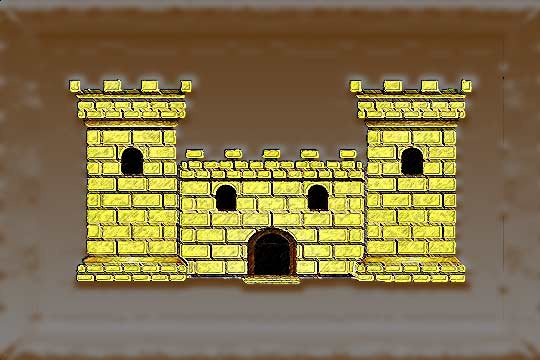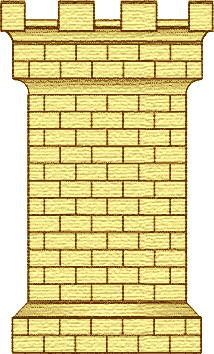Casteli, Kalymnos, Dodecanese,South Aegean
Castle of Casteli
| Location: |
| On a cape rock near the village Casteli, Kalymnos island |
| Region > Prefecture: |  |
| South Aegean Dodecanese | |
| Municipality > Town: | |
| City of Kalymnos • Casteli | |
| Altitude: | |
| Elevation ≈ 22 m |
| Time of Construction | Origin | |
| Before 5th century AD | BYZANTINE |
|
| Castle Type | Condition | |
| Coastal Fortress |
In Ruins
|
The Kasteli of Kalymnos is a byzantine castle in NW Kalymnos on a rock at the cape Aspropountari opposite the castle of Telendos .
History
There is no more info available about this castle, but the ruins on the rock lead to the conclusion that this was a fortified position dated back to the early Byzantine period or even earlier, the Hellenistic era.
The castle perhaps is closely related to the geological past of the island (seriously) and the fate of the ancient Pothaia.
Pothaia was the ancient capital of the island. It was a major city in the Aegean and continued to thrive through the Roman and the early-Byzantine periods.
We can not spot the ruins of this important city today, because they are at the bottom of the sea between the islands Telendos and Kalymnos and, more specifically, between the castle of Telendos and the castle of Kasteli of Kalymnos!
In the past, the two islands were united in a single island. In 535 AD, a big earthquake sunk part of the island and Telendos was formed as a separate islet. Pothaia was right on the part that was submerged into the sea.
It is almost certain that the castle of Telendos was a fragment of the fortification of Pothaia. We can assume the same about Kasteli although it does not give the impression that a piece is missing (as in the case of the castle of Telendos).
We strongly believe that Kasteli was indeed a part of the eastern fortification of the lost Pothaia. This hypothesis remains to be proved but it is a realistic one.
Kasteli remained in use for a couple of centuries after the disaster. It was abandoned probably because the rock was now very isolated and exposed and, therefore, vulnerable to pirate attacks.
| First entry in Kastrologos: | November 2012 | Last update of info and text: | July 2021 | Last addition of photo/video: | July 2021 |
Sources
- Μιχαήλ Κουτελλάς, Αρχαιολόγος, Καλυμνιακά Χρονικά, Τόμος Στ’, Κάλυμνος 2005, σ. 432-434
|
|
| Access |
|---|
| Approach to the monument: |
| - |
| Entrance: |
| Free access |

















